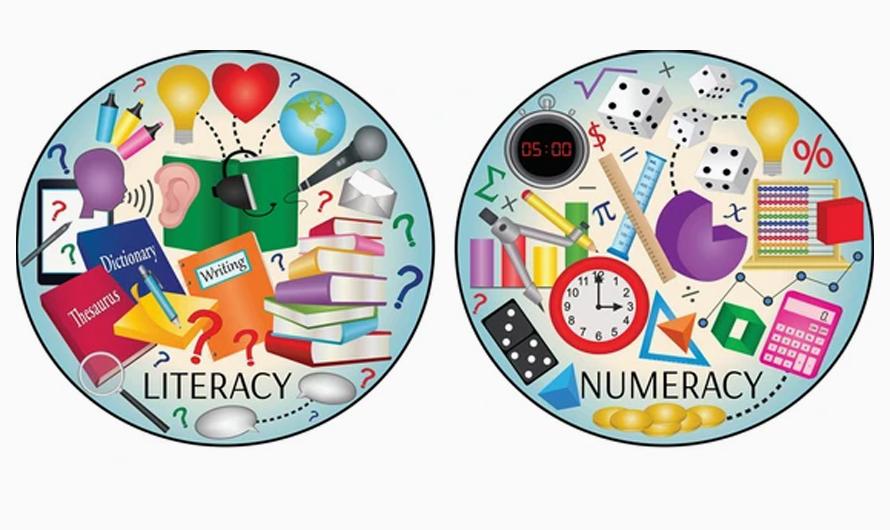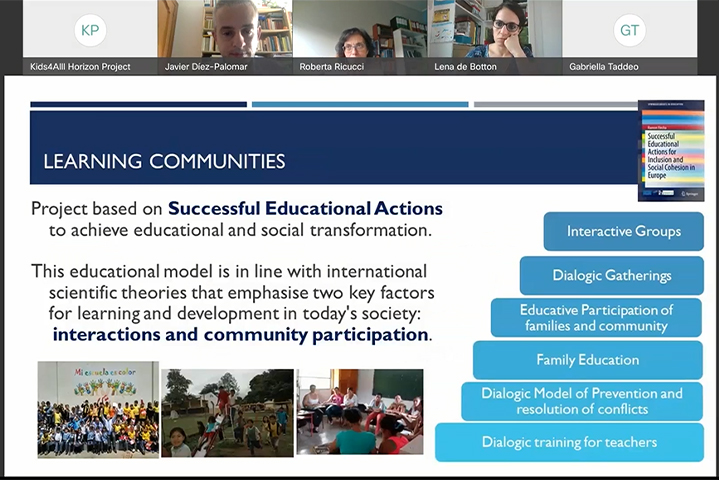
As part of the KIDS4ALLL project, a number of seminars were organised to encourage collaboration, learning and the sharing of knowledge between partners aimed at strengthening and valorising transcultural, interdisciplinary skills sets in a highly diversified learner population, that increasingly corroborates the actual necessity for lifelong learning.
The discussion in the seminar focusing on Literacy and Numerical Skills, held on June 22, 2021, revolved around two successful educational actions for inclusion and social cohesion. The foundations for a way forward towards educational development and equity, whilst giving a chance to all students depends on how educators overcome narratives related to ‘edumyths’, or rather assumptions, related to socio-economic status and family’s academic qualifications for example.
Dr. Javier Díez-Palomar recommends that schools use successful educational actions to provide equal opportunities for all students. He refers to SIOR, Social Impact of Science Repository, which offers concrete definable actions linked to official development goals from around the world and a realistic scenario for measuring social improvement. Such research provides for Scientific, Political and Social Impact.

The best actions suggested are related to interactive groups. Dialogic gatherings, educational participation of families and community, family education, dialogic model of prevention and resolution of conflicts and dialogic training for teachers. Dr. Javier Díez-Palomar emphasised that these practices are not fixed, and through experience and learning, more actions can be elicited. These actions can be implemented in various environments and educational communities. Research shows that implementing such actions have resulted in increasing attainment and acquisition of knowledge.
This educational model is in line with international scientific theories that emphasise two key factors for learning and development in today's society, that is, interactions and community participation. An example is using a collective construction of meaning, by using the best works of culture and scientific knowledge accumulated by humanity over time. This is the beauty of implementing dialogic gatherings as it is an opportunity for people to get together and engage to create knowledge and meaning, by also understanding different interpretations, thoughts, feelings and reflections.
This seminar provided realistic scenarios how this action can be used both for subjects related to art, but also those related to the sciences and numeracy.
Amongst various positive results which emerged from the implementation of this action, was a marked improvement in vocabulary, grammar and spelling in addition to the enhancement of reading comprehension skills and an overall improvement of students’ holistic development.
Dr. Javier Díez-Palomar also spoke about interactive groups, related to heterogeneous grouping, to improve children's learning by transforming their interactions. Hence, moving away from ‘streaming’ and towards ‘inclusion’.
This seminar also provided strategies on how this can be achieved in the classroom, whereby interactions and peer learning are enhanced while maintaining high expectations for everybody.
